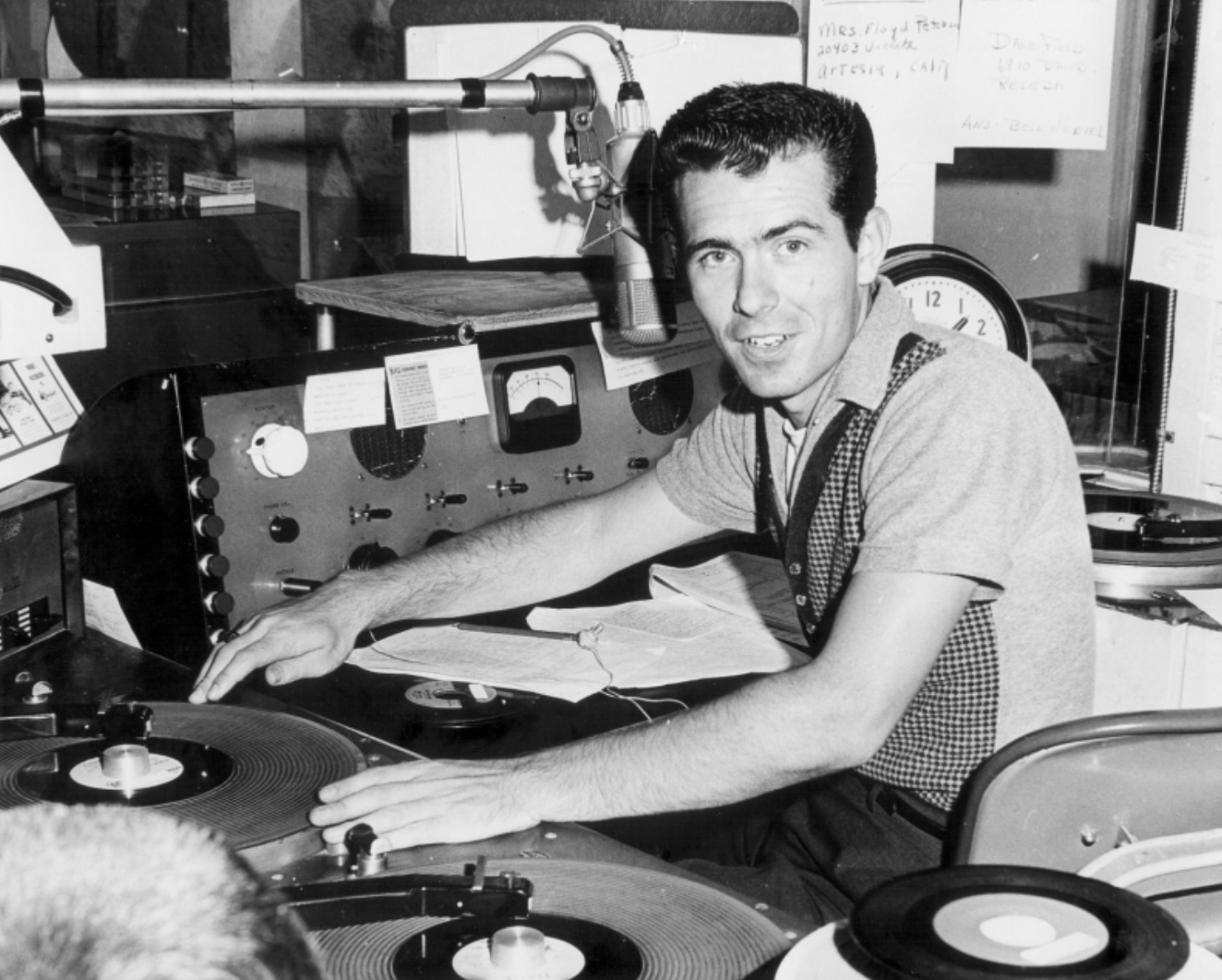KRLA and the Beat history
KRLA personalities
KRLA specialties
The Land of 1110: KXLA becomes KRLA

September 1, 1959 was the day KXLA became KRLA. The Cooke brothers had hired two alumni from WKY-AM in Oklahoma City, a radio station that had just changed format in 1958 to Top Forty rock-and-roll. William J. Wheatley was hired as program director, while Edwin V. Schulz was hired as station manager.
Presumably their experience with top-40 was the reason they were brought in, because KRLA would be going up against a Los Angeles top-40 powerhouse, KFWB-AM, "Color Radio." It was the only regional station with that format in the Southland, and it was a formidable presence on the airwaves.
Other changes were on the horizon. In addition to petitioning the FCC for a call-letter change from KXLA to KRLA and for a signal boost from 10,000 watts to 50,000 watts, the Cooke brothers, Wheatley, and Schulz interviewed potential new on-air talent and discussed how to revamp KXLA's antiquated programming mix of variety, live studio shows, agriculture and religious programming.
One new hire, Perry Allen of WKBW in Buffalo, New York, became the unwitting pawn in a station promotion gone terribly wrong. A promotional game called "Find Perry Allen" was supposed to involve Los Angeles citizens looking for (and presumably finding) Perry Allen somewhere in town, with a prize being offered to the first person to find him. But Allen was stuck in Buffalo during the time the promotion was running in Los Angeles and technically couldn't be found in L.A.
Rival station KFWB actually found Allen in Buffalo and not only demanded the prize money but generated local publicity about the contest that couldn't be won. This wasn't in the Cooke's game plan. But there were more troubles brewing.
The FCC started looking at station logs and determined that KRLA was not in compliance with its initial programming promises. Worse yet, station logs appeared to have been falsified to make it appear that KRLA was adhering to its originally proposed programs, such as airing religious programming that never actually went out over the airwaves.
None of these shenanigans sat well with the FCC, which had initiated a series of hearings to investigate to what extent KRLA had violated its licensing agreements. Remarkably these investigations continued from late 1959 through the mid-1970s. In the early part of the decade there was a real danger that KRLA's license would be suspended entirely. Local newspapers periodically reported, somewhat gleefully in some cases, that KRLA would be off the air within weeks. Remarkably, although the situation was precarious, KRLA clung to the airwaves throughout the 1960s and 1970s, albeit with a change in ownership and management.